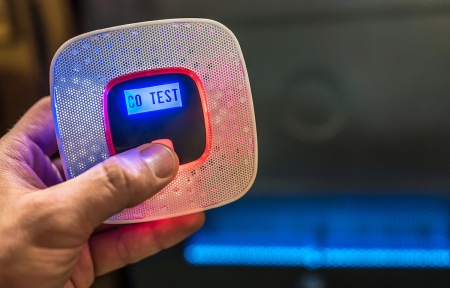The proliferation of products containing cannabidiol (CBD) oil has further muddied the issues of testing and restrictions on drivers with a Commercial Driver’s License. CBD oil is a type of cannabinoid, one of several naturally occurring chemicals that can be found exclusively in cannabis plants. Unlike tetrahydrocannabinol (THC), however, CBD does not produce a “high” or psychotropic experience.
Using marijuana for recreational reasons is legal in 10 states and the District of Columbia, and using medical marijuana is legal in 33 states and D.C. Possession or use of marijuana remains illegal under federal law, however; it is listed in Schedule I of the Controlled Substances Act. But under current law, federal prosecutors in states that have enacted laws authorizing the use of medical marijuana may not charge persons obtaining or using marijuana for medical use.
Possession and use of CBD oil is legal under the laws of almost every state. It is used by many persons to treat a variety of conditions, including anxiety, depression, nausea, pain, sleep disorders and even acne, although there are questions about whether it produces any true pharmacological benefits. CBD may be found in oils, foods, drinks and vaping products.
For commercial motor vehicle drivers, nothing has changed with regard to marijuana use. The Department of Transportation’s Office of Drug and Alcohol Testing and Compliance has recently reiterated that it remains unacceptable for any safety‐sensitive employee subject to drug testing under the DOT’s drug testing regulations to use marijuana for any reason. The office stated, “Medical Review Officers will not verify a drug test as negative based upon information that a physician recommended that the employee use ‘medical marijuana.’”
The Federal Motor Carrier Safety Administration website states it bluntly: drivers taking medical marijuana, even if prescribed by a physician, cannot be medically certified. The same applies to any recreational use of marijuana by a commercial motor vehicle driver. Accordingly, the driver qualification regulations in 49 CFR §391.41(b)(12)(i) state that a driver is physically qualified to drive a commercial motor vehicle if he or she “[d]oes not use any drug or substance identified in 21 CFR 1308.11, Schedule I, an amphetamine, a narcotic or other habit-forming drug.”
But what about CBD oil? Because cannabidiols contain only trace amounts of THC, a driver using CBD oil will probably test negative for marijuana. This is not an absolute statement, however. Depending on the type of extract, the dosage and the extent of usage, it is possible, though unlikely, that enough THC will show up in a test sample to generate a positive drug test result for marijuana.
Even if the driver does not use enough CBD oil to trigger a positive drug test, the use of CBD is still prohibited under the driver qualification regulations because it is a Schedule I substance.
The Drug Enforcement Administration published a final rule effective in 2017 creating a new Controlled Substance Code Number (drug code) for marijuana extract (7350). The DEA has recently issued a clarification on its website that the new rule provides that drug code 7350 does not include materials or products that are excluded from the definition of marijuana as set forth in the Controlled Substances Act. If a product consisted solely of parts of the cannabis plant excluded from the CSA definition of marijuana, such product would not be included in the new drug code (7350) or in the drug code for marijuana (7360).
But the DEA clarification states “there may be some misunderstanding about the source of cannabinoids in the cannabis plant.” The DEA goes on to assert, “[C]annabinoids, such as tetrahydrocannabinols (THC), cannabinols (CBN) and cannabidiols (CBD), are found in the parts of the cannabis plant that fall within the CSA definition of marijuana. . .” Thus, CBD oil remains a Schedule I substance and its use is prohibited for commercial motor vehicle drivers.
But the DEA also stated, “if a product, such as oil from cannabis seeds, consisted solely of parts of the cannabis plant excluded from the CSA definition of marijuana, such product would not be included in the new drug code (7350) or in the drug code for marijuana (7360), even if it contained trace amounts of cannabinoids.”
Based on this explanation, prudent company policy should prohibit any commercial motor vehicle driver from using any CBD oil or extract. Managers cannot know for sure whether a CBD product is or is not included in the definition of marijuana extract under the DEA rules. A driver found to possess CBD oil is subject to an out-of-service order, even if the driver has not failed a DOT drug test. Recently, the Vermont Department of Motor Vehicles placed a driver out of service for 24 hours because he had a bottle of CBD oil in his vehicle. Your company drivers face similar risks if they use these products.






